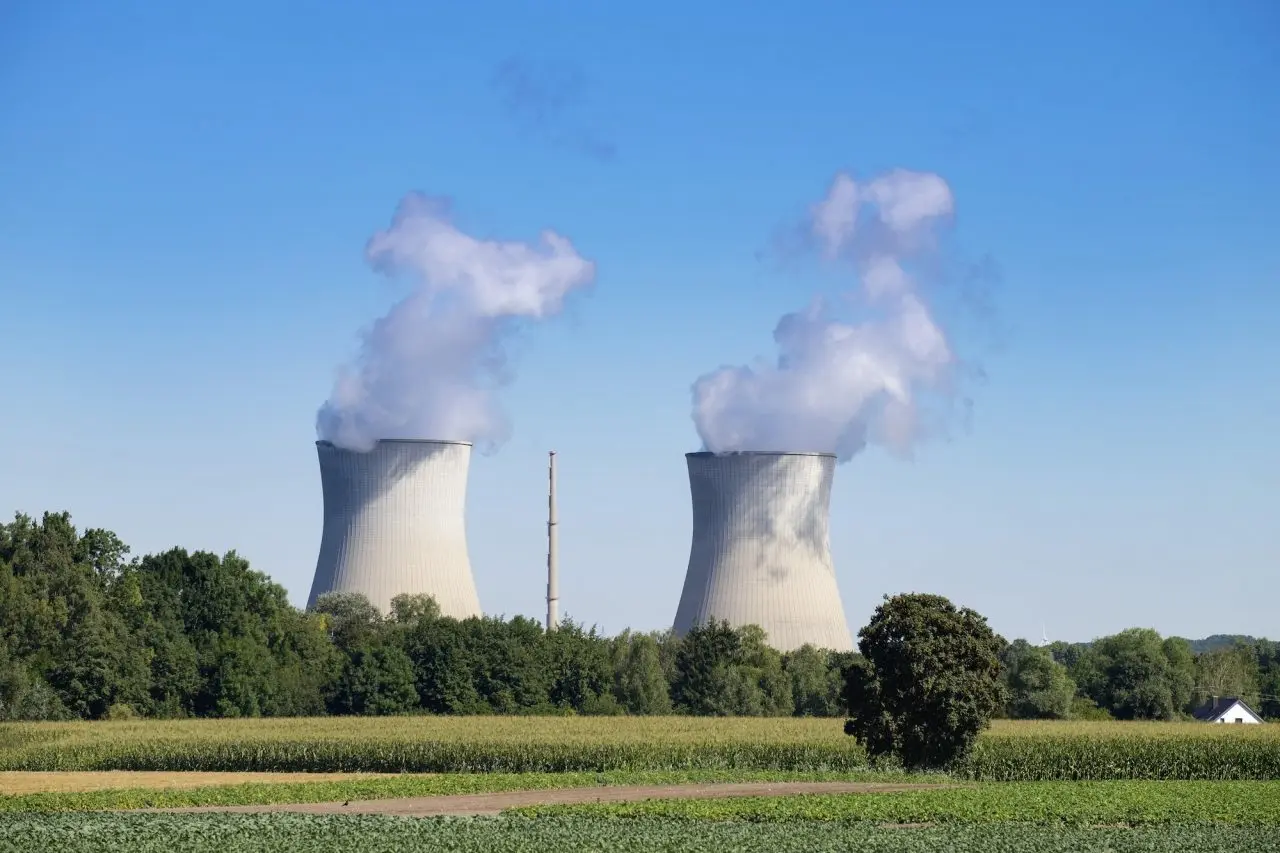The Essential Role of Licensing Engineering Support in the Energy Sector

Nuclear Licensing and Regulatory Support compliance are crucial for the safe and efficient operation of energy facilities, particularly in highly regulated fields such as nuclear energy. Specifically, nuclear licensing and regulatory support is vital for nuclear power plants and related facilities to ensure they comply with stringent safety, security, and operational regulations. In this article, we will explore the essential role that licensing engineering support plays in the energy sector, particularly within nuclear energy, and how organizations like Certrec are contributing to this process.

What Is Licensing Engineering Support?
Licensing engineering support refers to the professional assistance provided to organizations in the energy sector to navigate the complex process of obtaining and maintaining licenses and meeting regulatory requirements. This support involves not only ensuring that a facility complies with regulations but also guiding the organization through every step of the process, from design and development to operation and decommissioning.
Key Components of Licensing Engineering Support:
- Regulatory Compliance: Ensuring that the facility meets all local, national, and international standards.
- Documentation: Preparing the necessary paperwork and evidence required for license applications.
- Safety Assessments: Conducting safety analyses and ensuring that all safety measures are in place.
- Liaison with Regulatory Bodies: Communicating and working with regulatory agencies to ensure that all requirements are met.
- Design and Operational Support: Providing technical advice to optimize designs and operational procedures to align with regulatory requirements.
In the energy sector, this support is particularly crucial for nuclear facilities, which must comply with strict safety and environmental standards. Nuclear licensing and regulatory support plays a pivotal role in ensuring that these facilities operate in compliance with safety laws and regulations.
The Role of Nuclear Licensing in the Energy Sector
The nuclear energy sector operates under one of the most heavily regulated environments in the world. Nuclear licensing involves the process of obtaining the required approvals from regulatory authorities to build, operate, and decommission nuclear facilities. The licenses ensure that these facilities meet rigorous safety, environmental, and operational standards to protect both the public and the environment.
Key Aspects of Nuclear Licensing:
- Pre-Construction Licensing: Before a nuclear facility is built, it must undergo several rounds of regulatory reviews to ensure that the facility is designed to operate safely.
- Operational Licensing: Once the facility is built, it must obtain an operating license, demonstrating that it has met all operational, safety, and security standards.
- Ongoing Regulatory Compliance: Even after obtaining an operational license, the facility must regularly meet evolving regulatory standards. This involves continual monitoring, inspections, and assessments.
The nuclear licensing and regulatory support system ensures that these steps are met with the utmost care, following all required protocols to guarantee safety and environmental protection.
The Importance of Licensing Engineering Support in Nuclear Energy
Nuclear energy is a critical part of the global energy mix, providing a significant portion of the world’s electricity. However, due to the potential hazards associated with nuclear technology, it is heavily regulated. The consequences of non-compliance are severe, ranging from operational shutdowns to costly fines and even the revocation of licenses.
Why is Licensing Engineering Support Critical in Nuclear Energy?
- Complex Regulatory Environment: Nuclear facilities are subject to an array of complex and constantly evolving regulations at the local, national, and international levels. Licensing engineering support helps navigate this complexity by providing the necessary expertise to ensure compliance.
- Safety and Risk Mitigation: The nuclear industry prioritizes safety above all else. Licensing engineers play a crucial role in assessing safety risks and ensuring that facilities meet the stringent safety standards set by regulatory bodies.
- Environmental Considerations: Nuclear facilities must adhere to strict environmental regulations, including those related to waste management and emissions. Licensing engineering support helps ensure that facilities minimize their environmental impact and comply with these regulations.
- Operational Continuity: Ongoing nuclear licensing and regulatory support is essential to ensure that nuclear facilities maintain their operational licenses. Failure to comply with even minor regulatory changes can result in operational shutdowns or delays.
In this high-stakes environment, licensing engineering support helps nuclear power plants maintain safe, reliable, and efficient operations while minimizing the risk of costly disruptions.
How Licensing Engineering Support Helps in the Regulatory Process
The process of obtaining and maintaining a license in the energy sector involves several critical stages. Licensing engineering support is involved in every step of this process, from initial design to operational compliance.
1. Design Phase
During the design phase, nuclear facilities must ensure that the facility’s design complies with regulatory safety, environmental, and security requirements. Licensing engineers assist in designing systems that meet these requirements while also ensuring that the plant can be operated efficiently and cost-effectively.
Key activities in the design phase include:
- Safety analyses to identify potential risks and hazards.
- Reviewing design documents to ensure they align with regulatory standards.
- Developing strategies to mitigate risks and improve system resilience.
2. Construction Phase
Once the design is approved, the construction phase begins. Here, licensing engineering support ensures that the construction process follows all safety guidelines and meets regulatory standards. Engineers work closely with construction teams to monitor progress and ensure that any changes made to the design are compliant with licensing requirements.
3. Operational Licensing
After construction, the facility must obtain an operating license, which is granted only when the facility proves that it can operate safely and securely. Licensing engineers play a critical role in ensuring that the facility meets all operational requirements, such as:
- Safety protocols and emergency response plans.
- Monitoring and reporting systems for operational performance.
- Ongoing employee training and certification requirements.
4. Ongoing Compliance and Audits
After obtaining an operating license, the facility must undergo regular audits to ensure continued compliance with regulatory standards. Licensing engineering support helps in preparing for and managing these audits. The engineers help review operational processes and ensure that the facility is operating in full compliance with safety standards.
The Role of Certrec in Licensing Engineering Support
One company that has been instrumental in providing nuclear licensing and regulatory support is Certrec. Certrec is a leading provider of regulatory compliance and licensing support services for the energy sector, particularly for the nuclear industry. With years of experience in navigating complex regulatory frameworks, Certrec provides utilities and nuclear power plants with expert guidance throughout the licensing process.
What Services Does Certrec Provide?
Certrec offers a wide range of services designed to help energy companies maintain compliance with regulatory standards, particularly in the nuclear sector. Some of these services include:
1. Nuclear Licensing Support
Certrec assists with every stage of the licensing process, from initial design and construction to operational compliance. Their team helps organizations prepare the necessary documentation, submit applications, and ensure that all regulatory requirements are met.
2. Regulatory Compliance Management
Certrec offers ongoing support to help nuclear facilities comply with evolving regulatory standards. This includes managing audit preparation, assessing compliance gaps, and ensuring that the facility’s operations remain within the bounds of the law.
3. Safety and Risk Management
Certrec helps nuclear plants identify and mitigate safety risks through safety assessments and risk management strategies. By ensuring that the plant meets the required safety standards, Certrec helps reduce the likelihood of operational failures or accidents.
4. Training and Knowledge Transfer
Certrec provides training programs to help utility staff stay informed about regulatory changes and maintain compliance with industry standards. These programs help improve the knowledge base within the organization and ensure that employees are well-equipped to handle regulatory challenges.
5. Regulatory Liaison Services
Certrec acts as an intermediary between the nuclear facility and regulatory authorities. This support helps streamline communication and ensures that the facility is prepared for inspections and audits.
Why Choose Certrec?
Certrec’s expertise in nuclear licensing and regulatory support ensures that utilities and nuclear facilities can navigate the complex regulatory landscape with confidence. The company’s deep knowledge of regulatory frameworks and years of experience in the industry make it an invaluable partner for organizations in need of expert licensing engineering support.
By partnering with Certrec, organizations can minimize compliance risks, avoid costly penalties, and ensure that their nuclear facilities operate in accordance with all required safety and regulatory standards.
The Benefits of Licensing Engineering Support
1. Compliance Assurance
The most significant benefit of licensing engineering support is the assurance of compliance. By working with experts in the field, energy companies can ensure that they meet all regulatory requirements and avoid costly penalties or shutdowns.
2. Increased Efficiency
Licensing engineering support helps streamline the process of obtaining and maintaining licenses, reducing the amount of time and effort required to comply with regulations. This leads to greater operational efficiency and faster project completion.
3. Safety and Risk Reduction
Licensing engineers help identify potential safety risks early in the process and implement strategies to mitigate them. This reduces the likelihood of accidents or security breaches, ensuring that the facility remains safe for workers and the public.
4. Expert Guidance
Navigating the regulatory process can be complex and overwhelming, but with the right licensing engineering support, companies gain access to expert guidance that simplifies the process. This support provides peace of mind, knowing that all regulatory requirements are being met.
In conclusion, licensing engineering support is essential for energy companies, particularly in the nuclear sector, to navigate complex regulatory environments and ensure compliance with safety and operational standards. By partnering with experts like Certrec, organizations can streamline the licensing process, mitigate risks, and maintain continuous compliance with evolving regulations. This support not only helps safeguard public health and the environment but also ensures the smooth and efficient operation of critical energy infrastructure.
FAQs
What is nuclear licensing?
Nuclear licensing is the process of obtaining approval from regulatory authorities to operate a nuclear facility. This involves meeting safety, environmental, and operational standards set by regulatory bodies.
Why do nuclear facilities need engineering support?
Nuclear facilities require licensing engineering support to navigate the complex regulatory environment, ensure compliance, and manage safety risks. This support ensures that the facility meets all regulatory requirements and operates safely.
How can Certrec assist with nuclear licensing?
Certrec provides comprehensive nuclear licensing and regulatory support, including assistance with documentation, compliance management, safety assessments, and regulatory liaison services.
What are the benefits of licensing engineering support?
Licensing engineering support helps organizations ensure compliance with regulatory standards, improve operational efficiency, reduce safety risks, and navigate the regulatory process with expert guidance.
How does Certrec ensure compliance?
Certrec ensures compliance by providing expert guidance throughout the licensing process, conducting thorough safety and risk assessments, and helping organizations stay up-to-date with regulatory changes.
For More resources:
Unlocking the Secrets of NERC Audit Support: What Every Utility Needs to Know



